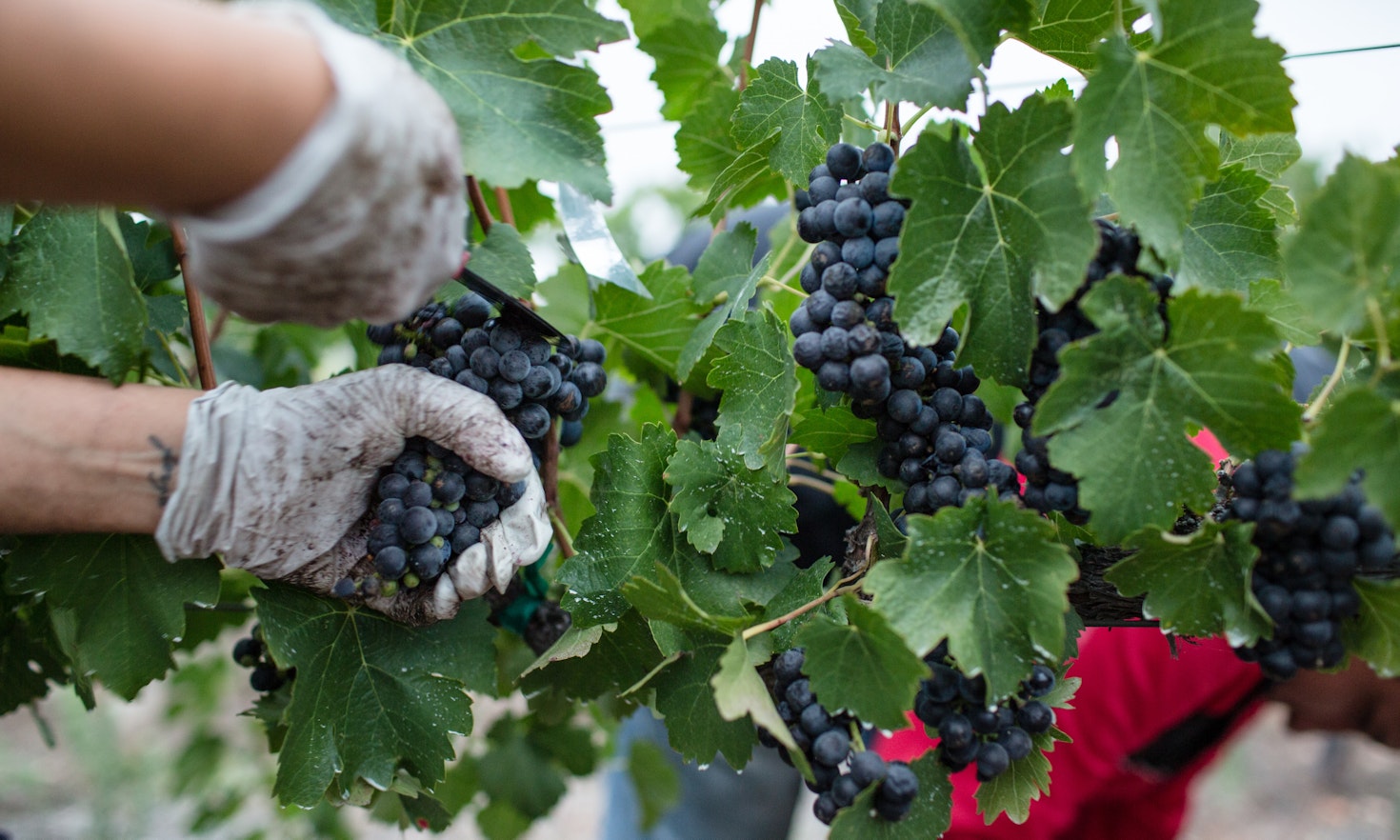Taking advantage of vulnerability: migrant workers in the Tuscan countryside

Labor exploitation in agriculture has long been considered a peculiarity of southern Italy. Yet a closer look reveals that patterns, mechanisms and forms of exploitation are frequent also in other parts of the country. Recent research conducted at the University of Siena explored the phenomenon in the Tuscan countryside.
Worldwide, migrant workers are exposed to the labor exploitation given their economic, social, and personal vulnerability (IOM, 2019). Labor exploitation is the abuse, whether direct, brutal, or less obvious, of people in the workplace for profit. Forced labor is “all work or service which is exacted from any person under the threat of a penalty and for which the person has not offered himself or herself voluntarily” (ILO, 1930). In Italy, law no. 199/2016 explicitly punishes all these forms of labor exploitation in agriculture by amending the criminal code (art. 603bis), targeting both abusive gang masters and employers who take advantage of workers, but often its enforcement can be difficult.
The scientific community has long considered these forms of labor exploitation a legacy of the past and exclusively prevalent in the southern parts of Italy. However, field research, journalistic inquiries, and judiciary investigations have shown that also Tuscany is not free from these forms of exploitation, although they can present themselves in more veiled forms and so harder to be prosecuted.
Investigating labor exploitation of migrant workers in the Tuscan agricultural sector
From 2021 to 2022, I was part of the University of Siena team which conducted a qualitative research on the labor exploitation of migrant workers in the Tuscan agricultural sector within the Demetra project. Financed by the Ministry of the Interior through the AMIF (Asylum, Migration and Integration) fund, Demetra was aimed to contrast labor exploitation in the Tuscan agricultural sector.
Thanks to that project, we were able to carry out social research through interviews to 80 exploited migrant workers and 40 privileged stakeholders. The interviews to the migrant workers were conducted by social workers belonging to cooperatives and NGOs, as part of the Demetra project, involved in the anti-trafficking system in Tuscany. The interviewed migrants had either contacted the regional anti-trafficking system for the first time or were already known to them: starting from them, the successive interviewees were done through the snowball method (Berti et al., 2023).
We then decided to concentrate the analysis on specific segments of migrant workers towards whom the legal discipline reserves a presumption of “vulnerability” - in particular, asylum seekers, holders of international protection, and those having “special cases” permits – selecting therefore 60 out 80 interviews.
Multiple vulnerabilities, multiple forms of exploitation
In the European legislation, the definitions “vulnerability” or “special needs” remain fragmented in various Directives, and so their transposition into the Italian legislation has not been an exception. There is a list drawn up in the Italian legislative decree no. 142/2015, that has been evolving to reflect the evolving migratory context. Beyond the legal aspect, the lack of language proficiency, the scarcity of information, the legal precariousness, the migratory debt, the waiting time for their asylum decisions in Italy and the need to send remittances back home, along with widespread fear, are some of the factors that contribute to the vulnerability of migrants.
In the research, we analysed if their vulnerability was functional to the Tuscan agriculture labor market. These migrants were employed especially in three sectors - olive growing and viticulture, fruit and vegetables and horticulture. Some people were employed in other residual sectors, such as fishing, livestock, or forestry, but many declared to have had different experiences in various agricultural sectors. Most of the respondents were young men from Sub-Saharan Africa countries (Guidi and Berti, 2023).
Beyond the legal aspect, the lack of language proficiency, the scarcity of information, the legal precariousness, the migratory debt, the waiting time for their asylum decisions in Italy and the need to send remittances back home, along with widespread fear, are some of the factors that contribute to the vulnerability of migrants.
Some strong results emerge from the field research: migrants are exploited in many different ways, including not having a regular contract, having wages deducted at source or under the minimum threshold, being forced to work long hours and weeks without breaks, and being subjected to poor workplace health and safety. This is often compounded by the use of improper contracts and, above everything else, by a real “outsourcing” of the recruitment of the exploited workforce, carried out mainly through informal channels such as word-of-mouth and ethnic networks.
In many cases, migrants reported having received control checks, pressure, and threats during the performance of their work aimed at increasing their speed and hence profits. Since the interviews were carried out during hard phases of the COVID-19 pandemic, it is worth mentioning that almost all migrant workers reported to not have received personal protective equipment such as masks or alcohol-based hand gel. Moreover, not one of the migrant workers reported to have received routinary medical checks or help when injured during the working time: one case reported to have been denied some fresh water to drink during the day.
The legal system of exploitation
From the research carried out, the weight of illegal work on the regional economy emerges clearly. Some traits are typical for the Italian precarious agricultural world and affect both national and migrant workers: types of contracts, lack of weekly rest periods, unpaid meals, working days not counted in the pay checks, and so on. But some other as non-payment reveals itself to be a type of abuse and irregularity peculiar to migrants, and it denotes asymmetries and vulnerabilities in the employment relationship.
Given their legal status, the vulnerable migrants interviewed should receive protection by the state, which often pushes them to accept illegal working conditions through the role played by reception facilities workers. In some cases, these choices may have been dictated by the guests’ urgent need to send back remittances - given the low daily allowance in their possession - or with the hope to help them to start their own path toward autonomy and independence. Other times, it might have been a matter of inattention toward the protection of vulnerable people during their stay in Italy.
The weight of illegal work on the regional economy emerges clearly. Some traits are typical for the Italian precarious agricultural world and affect both national and migrant workers [...] But some other as non-payment reveals itself to be a type of abuse and irregularity peculiar to migrants, and it denotes asymmetries and vulnerabilities in the employment relationship.
Following a perverse mechanism, the availability of a working income, equal to the national social allowance, means that the reception guests are considered autonomous and have to leave the reception facilities, therefore the grey and black areas of work are encouraged by the possible decline of the first reception measures.
Moreover, a situation of formal regularity of the exploitation system has been found in Tuscan agricultural sector. In a large formal grey area, the exploitation dynamics materialize and seem to be put in place by a diverse group of formally legal subjects that produce illegality within the legal framework of the work organization. The so called “legal system of exploitation” includes both the legal dimension of business, facilitated by the subcontracts mechanism, and the work organization’s dimension (Oliveri, 2018). Working relationships seem to be formally free, but the reciprocal consensus is very seeming. Severe labor exploitation episodes, threats, and abuses have been detected, even though these do not represent the norm. However, what worries the most is that more than half of the migrant workers reported to have consciousness of being exploited, although few reported to know the rights they could appeal to.

Citation
This content is licensed under a Creative Commons Attribution 4.0 International license except for third-party materials or where otherwise noted.

Migration: Der Weg in die Selbstständigkeit
 Claudia Lintner
Claudia Lintner
Voluntarily and Involuntarily Immobile Farmers under the Impacts of Climate Crisis in Turkey
 Hacer Gören
Hacer Gören
How Iran has just become the world's main host country for refugees
 Friedrich Poeschel
Friedrich Poeschel